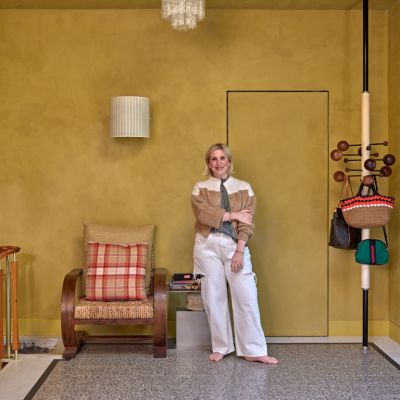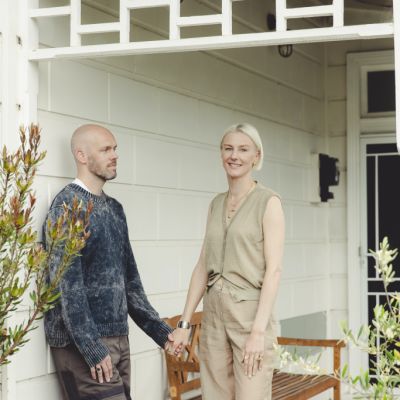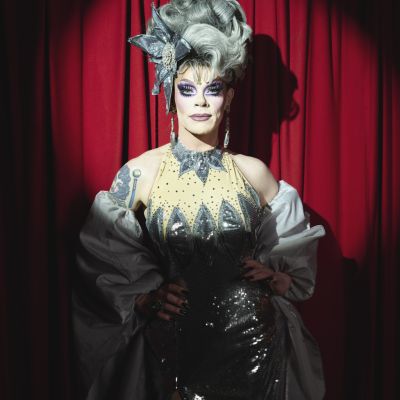Ayurveda Meets Cool-Girl Beauty at Junglo
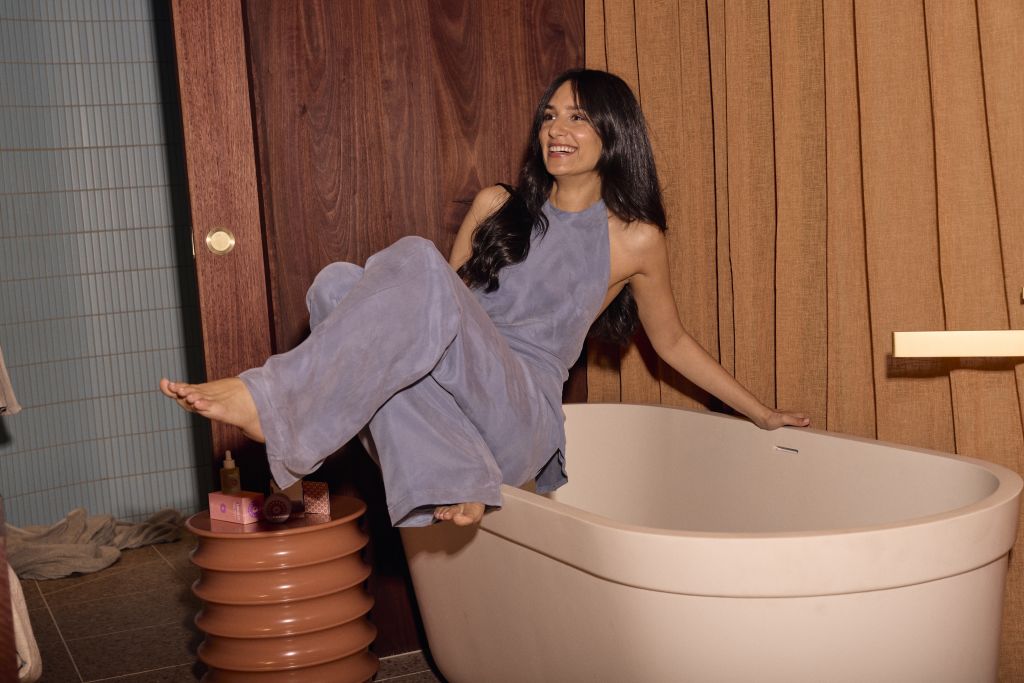
When Diya Shahaney was a kid and complained to her mum about a pimple, dry skin or any other small ailment, the answers were always found in the kitchen. Ground chickpeas were an exfoliating ingredient, multani mitti (Indian clay) was used as a detoxifying agent, and there were plenty of yoghurt and egg-yolk face masks in the mix, Shahaney recalls.
Leaning on natural home remedies is a shared experience for many South Asians around the world. “It’s something that’s passed down from generation to generation,” says the part-time Melburnian, who splits her time between Australia and Singapore.

“We need to find a way for these stories to still get passed down but be relevant to this dual identity that [first-gen South Asians] are living, which is a brown girl in the West, seeing all of this information about acids and actives but then having these stories of chickpea flour,” she tells Broadsheet.
Shahaney launched independent skincare label Junglo earlier this year as a way to bridge the gap between generational wisdom and modern-day beauty. But the idea came years before when she found herself suffering from hair loss and skin rashes due to the stress of corporate life. Naturally, she turned to her mum for help – this time as an adult – and Mother Nature was summoned once again.
“She helped me use turmeric to get rid of scarring and hair oiling for regrowth, and I really developed an affinity [for] that lifestyle and approach to beauty,” Shahaney says. What came next was a deep dive into Ayurveda, an ancient Indian system of health and wellbeing dating back more than 5000 years – a time long before it began trending across Tiktok and other Western media.
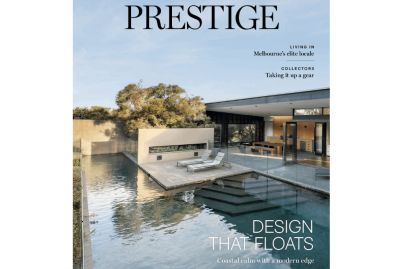

Traditional holistic knowledge forms the foundation of Junglo’s brand philosophy and products. It’s what Shahaney refers to as the “original form of self-care”, made up of three key elements: making intentional choices daily; using natural, nutrient-rich ingredients; and consistent practice over time.
“A lot of the ingredients that are known to Ayurvedic wellness are ones that people are so familiar with like turmeric or ashwagandha or tulsi [holy basil],” she explains. “They say it’s like a sister science to yoga. I think it’s a lot easier to convey yoga as a practice, but Ayurveda starts to get really complicated as you go down the track.”
Through Junglo, Shahaney is working toward giving the complex, old-world system a contemporary rebrand – one that’s easy to understand, accessible and relevant to a new wave of beauty users.
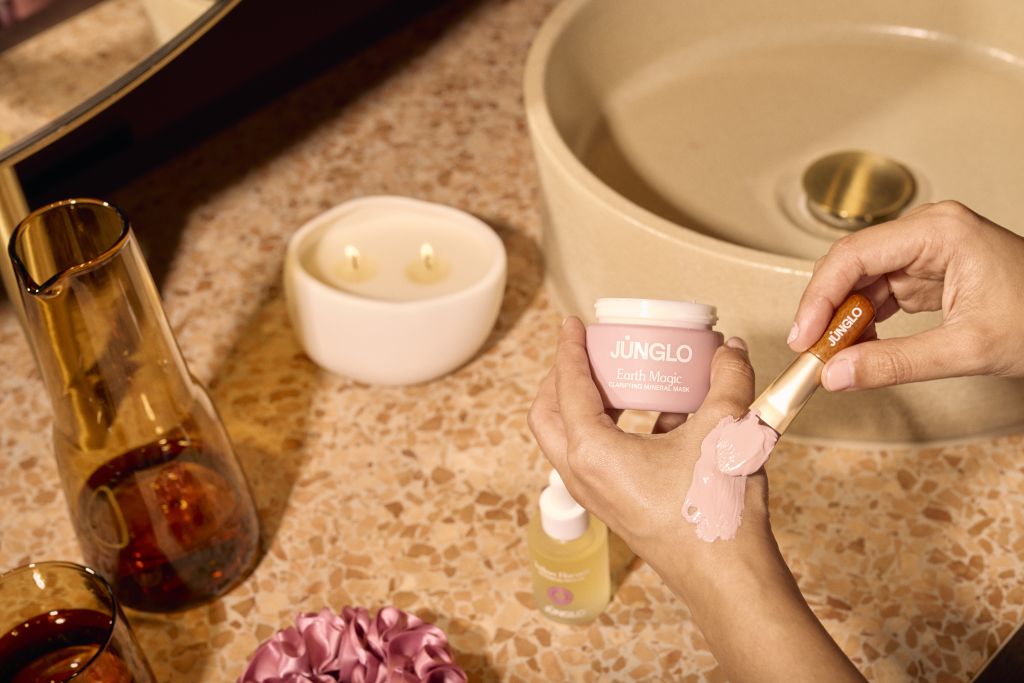
“When I started researching Ayurvedic skincare and South Asian beauty practices, I saw two ends of the spectrum: one end felt very traditional and outdated, something that looked like the packaging hadn’t been updated in so long. The other side of it was this kind of whitewashed interpretation of our culture that was so divorced from the roots.
“I felt like, ‘Where’s this story in the middle of a new, younger generation that’s exploring their identity and so ready to step into their power?’”
Junglo continued to brew in the background while Shahaney worked a corporate nine-to-five in Instagram strategy at Meta. She started by consulting with Ayurvedic practitioners in India to understand the properties and benefits of traditional ingredients, before working with a chemist in Australia who was able to create modern formulations they could thrive in.
“We made sure to use Ayurvedic ingredients that have clinical trials behind them, so there’s proof that these ingredients work at a certain percentage. Then it’s about creating really elevated versions of these formulations that can ladder up to the big brands out there.”
Two years of development and 21 iterations later, Junglo’s first product, Earth Magic – a clarifying Indian clay mask packed with fig extract and ashwagandha – was perfected. Much of the process took place during Covid, when skincare factories were prioritising hand sanitiser over beauty formulations. “I would get it in the mail, and I have all these videos of me wearing gloves and letting the product sit out for a week before I could open.”
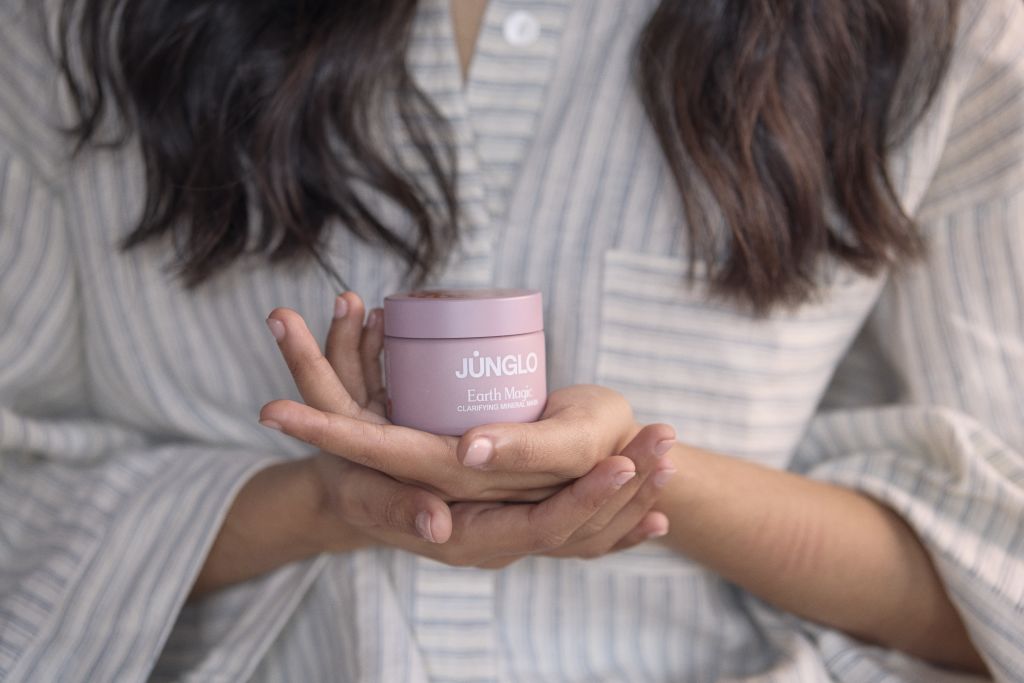
Earth Magic builds upon Shahaney’s childhood memories of breaking off a block of multani mitti (a common household ingredient for many South Asians), mixing it with water and applying it to her face. “I think there’s a lot out there about Australian clay or Egyptian clay, and I want to create that story of Indian clay.” It’s said to be more hydrating than other clays that draw out moisture, she says.
More recently, the brand launched its lightweight Indian Harvest face oil, a blend of 12 native-to-India extracts including calendula, sweet almond, cucumber seed and black cumin seed. Shahaney works with Australian raw materials suppliers who often source ingredients from India, and has developed a consumer testing community made up of mostly melanin-rich people with all different sorts of skin types.
Packaging-wise, Junglo’s aesthetic is a minimal take on Indian design language, marrying cool-girl aesthetics with heritage. A soft calming mauve contrasts against a pop of orange: a reflection of India’s duality – chaos and spirituality – and an apt representation for our daily lives, Shahaney says.
“The idea is about being able to find your inner peace. I think people turn to skincare as a way to make daily intentions, to commit to themselves, and it’s a way of finding your grounding at the start or end of the day, so I really wanted our design to be able to reflect that.”
But in an industry with no shortage of buzzwords (“Ayurveda” now among them), how does Junglo cut through the noise and make a difference?
“I think we talk more about design and culture and storytelling. Our focus is on reclaiming South Asian practices, and I think there are not many brands that are very staunch in doing that,” Shahaney says. It’s a mission that goes beyond skincare and looks to elevating the rich arts, crafts and traditions of India.
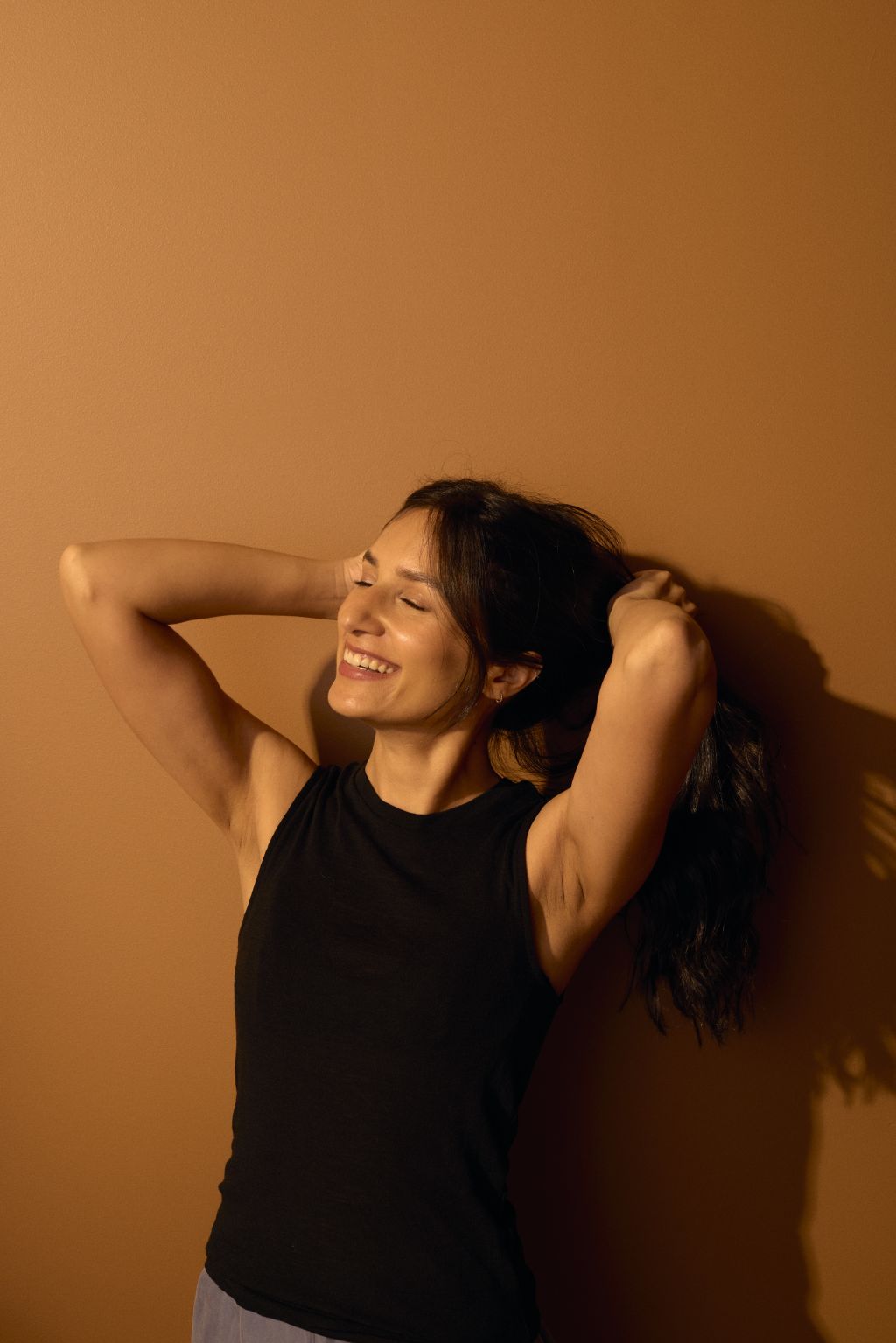
“I feel like there’s a moment right now for South Asian culture,” Shahaney says – and she’s got a point. Mattel released its first Diwali Barbie this year in collaboration with Indian designer Anita Dongre; we witnessed the Ambani family’s tabloid-ready wedding palooza in July; Dior presented its Fall 2023 runway in Mumbai, paying tribute to Indian textiles; and American Ayurvedic skincare label Inde Wild is on the rise.
“I can see it on Tiktok. I can see it on Instagram,” she says of her culture’s current zeitgeisty status. “It’s definitely happening in the US, but I think Australia still has a long way to go.”
For Shahaney, elevating culture is her North Star. And there’s a lot more of her native India she wants to show the world through Junglo – from traditional handcrafts like block printing on toiletry bags to new products in the pipeline championing other Ayurvedic ingredients.
But most of all, she hopes to convey a message of quiet confidence to young people like her. It’s summed up by the brand’s name which riffs on the Hindi word “jungly” (meaning “wild”), a term Shahaney’s grandmother would use to describe her natural, unruly hair. “It was a fun way to re-own that word, and our ethos about reclaiming the culture. A lot of what I’m trying to do is help people feel confident in their wildest selves.”
We recommend
We thought you might like
States
Capital Cities
Capital Cities - Rentals
Popular Areas
Allhomes
More
